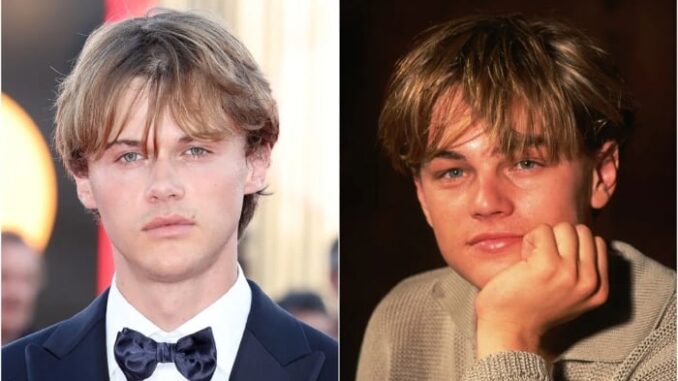
The Ghost of Jack Dawson: When Christopher Briney Met the Titanic Echo
In the sprawling, often chaotic, landscape of internet fandom, moments of collective recognition can ripple with surprising intensity. One such ripple recently transformed into a wave, crashing over actor Christopher Briney and an entire generation of film enthusiasts. The catalyst? A single, "Titanic-inspired moment" that, for a fleeting instant, seemed to conjure the spectral, windswept charisma of a young Leonardo DiCaprio, specifically his iconic portrayal of Jack Dawson. This wasn’t merely a casual comparison; it was an illustrative flash of cultural nostalgia, a potent cocktail of emergent stardom, and the enduring power of a cinematic ghost.
The moment itself, disseminated across social media with the speed of digital wildfire, was a tableau of familiar longing. Perhaps Briney, known for his role in "The Summer I Turned Pretty," was captured with a cascade of tawny hair, windswept with an almost cinematic precision, framing a jawline that seemed to curve with familiar, boyish defiance. The eyes, a shade of earnest blue, held a glint of the same untamed hope, the same nascent world-weariness that once defined a generation's heartthrob. It was a pose that, whether by accident or artful design, mirrored the very essence of Jack Dawson – an open-hearted vagabond poised on the precipice of destiny, gazing into a future both thrilling and tragically uncertain.
What made this particular comparison ignite with such fervent enthusiasm was not just the physical overlap, though that was undeniably striking. It was less about a perfect facial mapping and more about a seismic cultural reverberation, a collective gasp of recognition from a fandom eager to revisit a golden age of cinematic romance. Titanic, for many, isn't just a film; it's a foundational text of their youth, a benchmark for passion, sacrifice, and the ache of what-ifs. Young Leonardo DiCaprio, with his tousled hair, mischievous grin, and heart-on-sleeve vulnerability, became the archetype of the romantic lead – a dream of wild freedom and profound connection. To see a flicker of that in Briney was to feel the tang of salt air, the whisper of fabric against skin, the soaring violins of an unforgettable score.
Fandom, in its purest form, thrives on connection and projection. When fans say Briney "resembles" DiCaprio in that specific moment, they're not just noting a physical likeness; they're expressing a desire to believe in the enduring power of that archetype. They're seeing the potential for a new vessel to carry a similar kind of emotional weight, a new face to embody that particular brand of charismatic, slightly melancholic charm. It's an act of hopeful inheritance, a collective wish to rediscover a feeling that cinema, at its best, can evoke. The internet, with its infinite scroll and immediate sharing, transforms these individual observations into a shared narrative, a digital chorus amplifying the uncanny echo.
For Christopher Briney, this "Titanic-inspired moment" is both a blessing and a potential burden. On one hand, it’s an undeniable surge of attention, a powerful, almost pre-ordained, comparison to one of Hollywood’s most revered figures. It places him, however fleetingly, within a lineage of undeniable star power. On the other hand, the shadow of such a giant can be long. The challenge will be to absorb the compliment, ride the wave of recognition, but ultimately forge his own identity, to step out from behind the ghostly echo of Jack Dawson and carve out a distinct space in the cinematic consciousness. The resemblance might open doors, but true longevity demands originality.
Ultimately, the phenomenon of fans declaring Christopher Briney's resemblance to Leonardo DiCaprio, sparked by a single, evocative image, illustrates more than just a passing physical similarity. It’s a testament to the indelible mark certain films and performances leave on the collective psyche. It’s a vivid demonstration of how fandom actively participates in shaping narratives, searching for new conduits for beloved archetypes. And it’s a poignant reminder that while faces may change and generations may pass, the yearning for that windswept, hopeful gaze – the ghost of Jack Dawson – continues to sail through our cultural imagination, forever searching for a new shore.